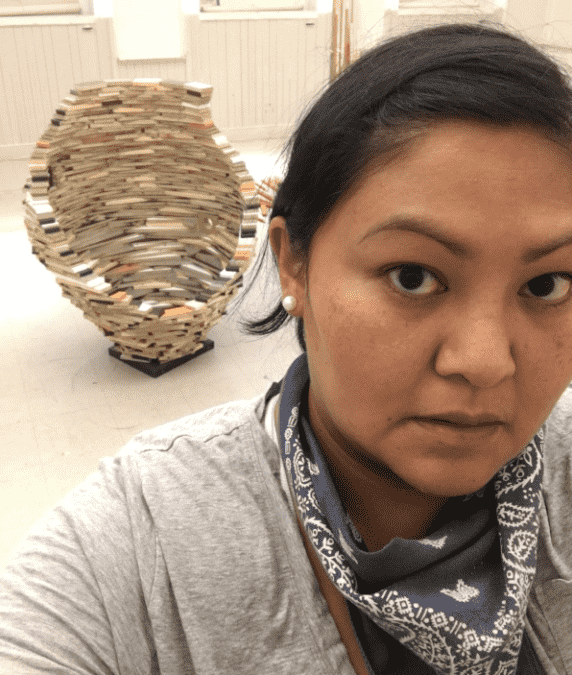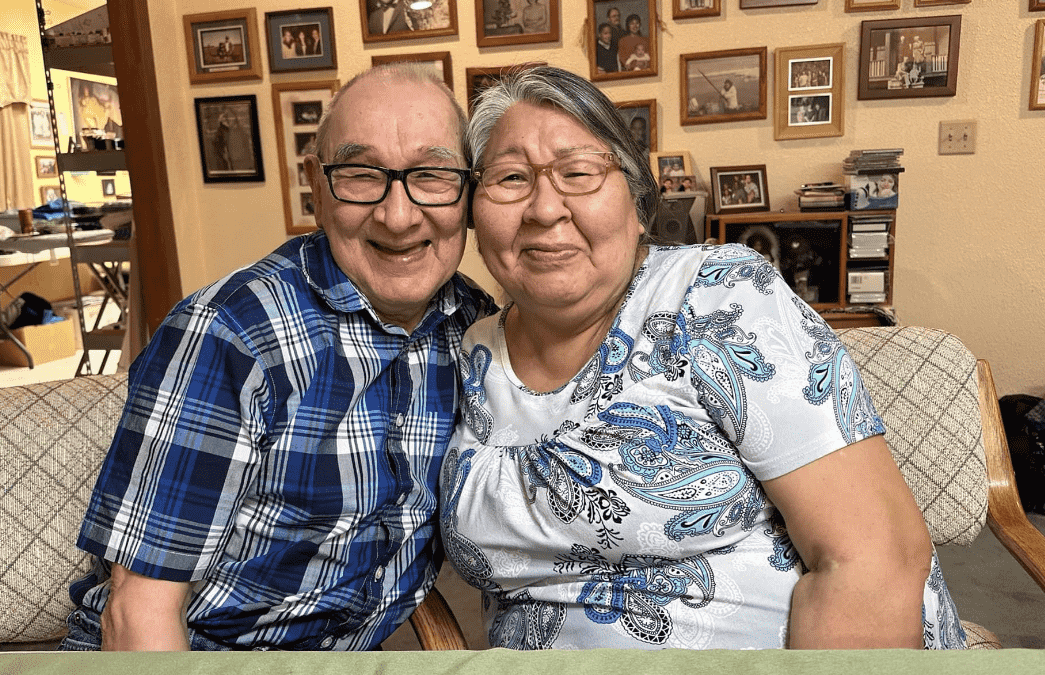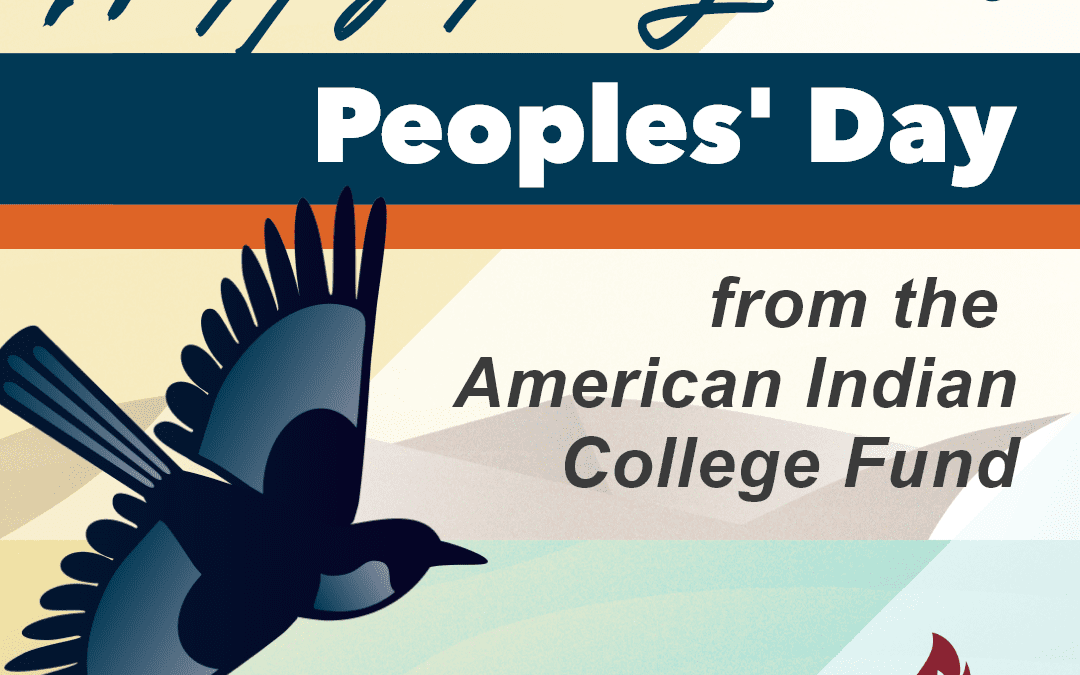A guest post from Heidi K. Brandow (Diné, Kanaka Maoli), Communications Manager at First Peoples Fund
As the fall season conjures memories of vivid colors, pumpkin-spiced lattes, and celebrations such as Halloween, we ask the public to refrain from participating in racist and inaccurate portrayals of Indigenous people through “Native American” themed costumes. These practices in no way honor Indigenous people but rather reinforce false narratives and dehumanize Indigenous people into caricatures.
Instead, as we celebrate the beauty of the fall season, we encourage you to uplift the work of artists like Shawn Brigman, Ursula Hudson and countless others that we at First Peoples Fund, support. You can do this by:
1. Listening to our Collective Spirit® podcast to learn about our artists and culture-bearers to counter false narratives and as a signal of true allyship.
2. Supporting the work of First Peoples Fund, whose mission is to honor and support the Collective Spirit® of Indigenous artists and culture-bearers, ensuring accurate and dignified portrayals of Indigenous people.
3. Learning more about First Peoples Fund and how you can support the work of Indigenous artists and culture-bearers.
At First Peoples Fund, we believe that art embodies Native peoples’ cultures and our understanding of who we are and where we come from. Art connects us to our history, our relationship to the land and one another, bringing us strength, meaning, resilience, and joy. Our work is to support our artists and culture-bearers in their work to uplift our Native communities. Artists and culture-bearers give us the power to connect with our past and chart our future.
In a recent First Peoples Fund’s Collective Spirit® podcast episode, we learned more about the critical nature of cultural recovery from artist, Shawn Brigman, Ph.D.’s, (Spokane) creative practice. To Shawn, the cultural recovery process involves his community’s nature-based architectural heritage, such as tule mat lodges, pit houses, and bark sturgeon-nose canoes. The architectural style of Shawn’s tribal community, and surrounding Indigenous communities, once flourished. But the continuity of this architectural heritage was nearly lost after contact with colonial forces. Thanks to the concerted and collective efforts of elders and individuals like Shawn Brigman, it has been preserved.
In another episode, we heard from Ursala Hudson (Tlingit), a textile artist whose work honors her Tlingit heritage through hand-twinned wool Ravenstail and Chilkat weavings. Hailing from a long line of Tlingit weavers, Hudson acknowledges her artistic practice is an exploration of personal identity firmly situated, on one hand, in her ancestral ties to Tlingit culture, language and stories, while on the other hand, it is a recognition of dominant Western culture. The two are not mutually exclusive but are interrelated and tell a nuanced story of continuity.
Shawn Brigman and Ursala Hudson’s stories are but a fraction of the multitude of stories collected from over 25 years of First Peoples Fund working with and for Indigenous artists and communities. Their stories reflect the rich diversity of culture and experiences that champion prevailing Western notions of Indigenous demise and assumed obsolescence. By contrast, Brigman and Hudson’s stories affirm the continuity and relevance of Indigenous culture, language, and the complexity of Indigenous identity in the 21st century.











